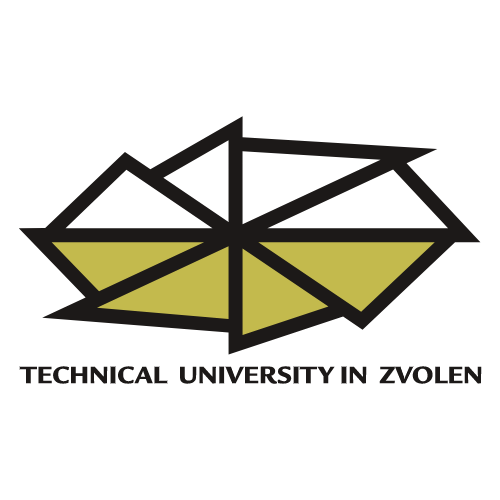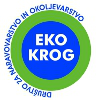Search Results Stakeholder
You have searched in Stakeholders with the following criteria: << Go Back
Actions in National scale
The search returned 2 results.

Vladislav Kaputa
- Slovakia
- Knowledge
- Skills
- Competencies
- Values
- Attitudes
- Behaviours
- Economic Aspects of Environmental Citizenship
- Social Aspects of Environmental Citizenship
- Political Aspects of Environmental
- Citizenship
- Environmental Citizenship General
- Individual actions
- Collective actions
- Actions in Private sphere
- Actions in Public sphere
- Actions in Local scale
- Actions in National scale
- Actions in Global scale
- Preventing new environmental problems
- Solving environmental problems
- Addressing structural causes of environmental problems
- Achieving critical & active engagement and civic participation
- Practising environmental rights & duties
- Promoting inter- & intra-generational justice
- Developing healthy relationship with nature
- Achieving sustainability
- Inquiry
- Planning Actions
- Networking and Sharing in Scales
- Sustain Environmental and Social Change
- Civic Participation
- Evaluation and Reflection
The Technical University in Zvolen (also known as TUZVO) is a modern higher education institution providing education in all three levels of studies within the European Higher Education and Research Area. In the higher education system in Slovakia, the TUZVO has a unique specialisation within a focus on the spheres of forest – wood – ecology – environment with an appropriate expansion in other technical, natural, security, economics as well as design spheres.
Katja Vuoresyrjä
- Finland
The Koli Nature Centre Ukko offers Finland's best known national landscape, the hills of Eastern Finland and heritage sites. The Koli Heritage Exhibition displays Koli's geological features, natural environment and culture in a variety of ways and provides advice and tips for hiking in the Koli National Park. The Nature Centre is only a few hundred metres from the Ukko-Koli lookout point – one glimpse of the national landscape and you will be captivated by Koli forever.
Iggy Aram
- Israel
HIRIYA Recycling Park is the waste treatment facility that serves the most densely populated area of the country. Based on the perspective that waste is a resource and source of raw materials, the original dump has been turned into a state-of-the-art facility that uses advanced technologies for waste management. This facility perceives education as a component of waste management and has established a unique environmental education center,
Mr. Shachar Kahanovitz
- Israel
- Knowledge
- Skills
- Competencies
- Values
- Attitudes
- Behaviours
- Economic Aspects of Environmental Citizenship
- Social Aspects of Environmental Citizenship
- Political Aspects of Environmental
- Citizenship
- Individual actions
- Collective actions
- Actions in Private sphere
- Actions in Public sphere
- Actions in Local scale
- Actions in National scale
- Preventing new environmental problems
- Solving environmental problems
- Addressing structural causes of environmental problems
- Achieving critical & active engagement and civic participation
- Practising environmental rights & duties
- Promoting inter- & intra-generational justice
- Developing healthy relationship with nature
- Achieving sustainability
- Planning Actions
- Networking and Sharing in Scales
- Sustain Environmental and Social Change
- Civic Participation
The Heschel Center for Sustainability develops and implements the vision of sustainability: a just and unified society, resilient and democratic economy, and a productive and healthy environment for all inhabitants. The center links conceptual knowledge and practical knowledge, spreads the story of sustainability in diverse creative ways, and supports change agents from all sectors in promoting significant change in Israel.
Zivit Linder, Director
- Israel
- Knowledge
- Skills
- Competencies
- Values
- Attitudes
- Behaviours
- Economic Aspects of Environmental Citizenship
- Social Aspects of Environmental Citizenship
- Political Aspects of Environmental
- Individual actions
- Collective actions
- Actions in Private sphere
- Actions in Public sphere
- Actions in Local scale
- Actions in National scale
- Actions in Global scale
- Preventing new environmental problems
- Solving environmental problems
- Addressing structural causes of environmental problems
- Achieving critical & active engagement and civic participation
- Practising environmental rights & duties
- Promoting inter- & intra-generational justice
- Developing healthy relationship with nature
- Achieving sustainability
- Planning Actions
- Networking and Sharing in Scales
- Sustain Environmental and Social Change
- Civic Participation

Uroš Macerl
- Slovenia
- Attitudes
- Individual actions
- Collective actions
- Actions in Private sphere
- Actions in Public sphere
- Actions in Local scale
- Actions in National scale
- Preventing new environmental problems
- Solving environmental problems
- Practising environmental rights & duties
- Planning Actions
- Sustain Environmental and Social Change
- Civic Participation
Hagit Gefen, Director
- Israel
- Knowledge
- Skills
- Competencies
- Values
- Attitudes
- Behaviours
- Social Aspects of Environmental Citizenship
- Citizenship
- Environmental Citizenship General
- Individual actions
- Collective actions
- Actions in Private sphere
- Actions in Public sphere
- Actions in Local scale
- Actions in National scale
- Preventing new environmental problems
- Solving environmental problems
- Addressing structural causes of environmental problems
- Achieving critical & active engagement and civic participation
- Practising environmental rights & duties
- Promoting inter- & intra-generational justice
- Developing healthy relationship with nature
- Achieving sustainability
- Planning Actions
- Networking and Sharing in Scales
- Sustain Environmental and Social Change
- Civic Participation
The green network is a NGO that deals with Education for Sustainable development and social change. Toward this end it has developed a pedagogy that envisions to create deep understanding of sustainability issues, a sense of belonging, nourish pluralism and the capcaity to inspire change. This organization adopts a network approach through which its ~50 professionals create networks with teachers in all sectors of the Israeli society (Jews and Arabs, secular and religious, in urban and periperal environments).
Gorazd Marin?ek
- Slovenia
- Attitudes
- Behaviours
- Individual actions
- Collective actions
- Actions in Private sphere
- Actions in Public sphere
- Actions in Local scale
- Actions in National scale
- Preventing new environmental problems
- Solving environmental problems
- Addressing structural causes of environmental problems
- Achieving critical & active engagement and civic participation
- Practising environmental rights & duties
- Developing healthy relationship with nature
- Achieving sustainability
- Planning Actions
- Networking and Sharing in Scales
- Sustain Environmental and Social Change
Gaja Brecelj
- Slovenia
- Knowledge
- Skills
- Competencies
- Values
- Attitudes
- Behaviours
- Social Aspects of Environmental Citizenship
- Political Aspects of Environmental
- Citizenship
- Environmental Citizenship General
- Individual actions
- Collective actions
- Actions in Private sphere
- Actions in Public sphere
- Actions in Local scale
- Actions in National scale
- Preventing new environmental problems
- Addressing structural causes of environmental problems
- Achieving critical & active engagement and civic participation
- Practising environmental rights & duties
- Promoting inter- & intra-generational justice
- Developing healthy relationship with nature
- Achieving sustainability
- Inquiry
- Planning Actions
- Networking and Sharing in Scales
- Sustain Environmental and Social Change
- Civic Participation
- Evaluation and Reflection
STRATEGIC AREAS AND GOALS Environmentally sustainable society: Slovenia is fulfilling its responsibilities for a global environmental balance, especially in the fields of climate and biodiversity. Socially just society: Slovenia is actively involved in solving local and global problems, striving for a society of sustained prosperity for all (a society defined by indicators more relevant and comprehensive than GDP, by equitable relations, responsibility and provision of equal opportunities for all, without enrichment on account of exploitation). Locally self-subsistent society: Slovenia’s basic needs by 2030 are covered by local resources (energy, food, water and other resources) within the limits of their carrying capacity. Open society: Slovenia has established a participatory democracy. To ensure the decisions are in the public interest, the decision-making processes are open and based on the inclusion of civil society. Non-governmental sector is equal to the public and private sectors. Umanotera understands sustainable development as a dynamic balance between man and nature, which allows social justice and intergenerational solidarity. Sustainable development also means that people should exploit the unlimited capability of their minds instead of exploiting limited natural resources. Only in this way will we be able to leave our environment and resources to future generations in the best possible condition.
